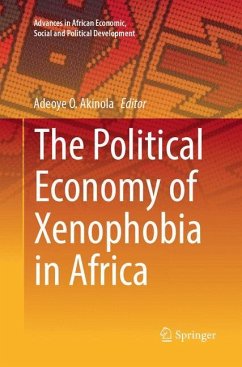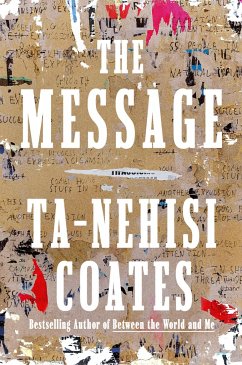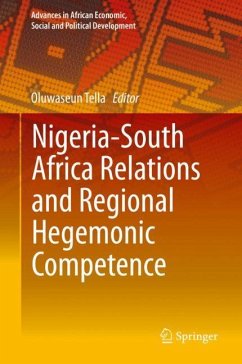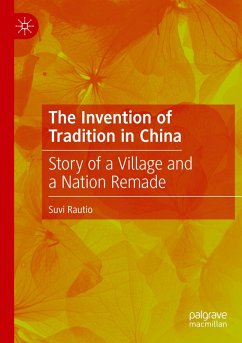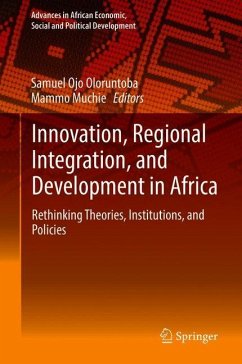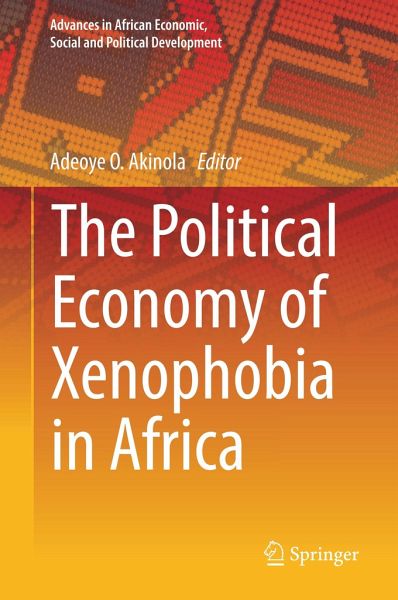
The Political Economy of Xenophobia in Africa

PAYBACK Punkte
38 °P sammeln!
This book analyzes the phenomenon of xenophobia across African countries. With its roots in colonialism, which coercively created modern states through border delineation and the artificial merging and dividing of communities, xenophobia continues to be a barrier to post-colonial sustainable peace and security and socio-economic and political development in Africa. This volume critically assesses how xenophobia has impacted the three elements of political economy: state, economy and society. Beginning with historical and theoretical analysis to put xenophobia in context, the book moves on to c...
This book analyzes the phenomenon of xenophobia across African countries. With its roots in colonialism, which coercively created modern states through border delineation and the artificial merging and dividing of communities, xenophobia continues to be a barrier to post-colonial sustainable peace and security and socio-economic and political development in Africa. This volume critically assesses how xenophobia has impacted the three elements of political economy: state, economy and society. Beginning with historical and theoretical analysis to put xenophobia in context, the book moves on to country-specific case studies discussing the nature of xenophobia in Nigeria, South Africa, Zambia, Ghana and Zimbabwe. The chapters furthermore explore both violent and non-violent manifestations of xenophobia, and analyze how state responses to xenophobia affects African states, economies, and societies, especially in those cases where xenophobia has widespread institutional support. Providinga theoretical understanding of xenophobia and proffering sustainable solutions to the proliferation of xenophobia in the continent, this book is of use to researchers and students interested in political science, African politics, peace studies, security, and development economics, as well as policy-makers working to eradicate xenophobia in Africa.



